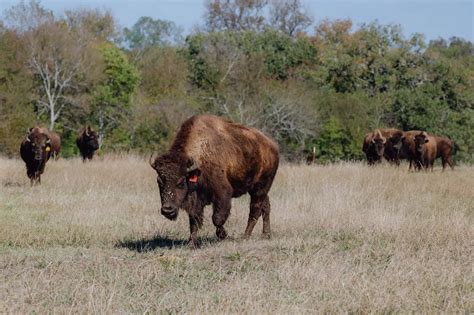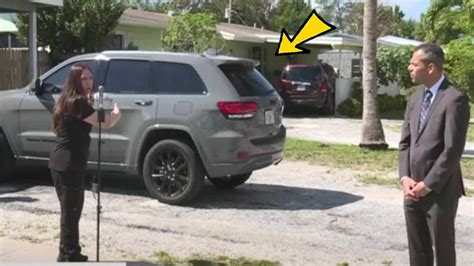
The man accused of shooting Jonathan Joss, a former city council candidate in Aurora, Colorado, pleaded not guilty and proclaimed his innocence during a court appearance this week. “I didn’t do it,” declared Terrance Hassell, 47, as he faces charges of attempted first-degree murder and first-degree assault in connection with the November 2023 shooting.
Terrance Hassell, the suspect in the shooting of Jonathan Joss, entered a plea of not guilty and asserted his innocence during a recent court proceeding, escalating the legal battle surrounding the high-profile case that has gripped the Aurora community. Hassell, 47, is charged with attempted first-degree murder and first-degree assault, carrying potentially severe penalties if convicted. The charges stem from an incident in November 2023 when Jonathan Joss, a well-known figure in Aurora due to his previous candidacy for the city council, was shot and seriously injured.
The courtroom was filled with anticipation as Hassell, who has been in custody since his arrest, stood before the judge. According to court reporters present, Hassell’s statement, “I didn’t do it,” was delivered with a notable degree of conviction. This declaration adds a layer of complexity to the case, which has already garnered significant media attention. The defense is expected to argue that the prosecution’s evidence is circumstantial or insufficient to prove Hassell’s direct involvement in the shooting.
The prosecution, however, appears confident in their case, citing forensic evidence and witness testimonies that allegedly link Hassell to the crime scene. While the specifics of the evidence have not been fully disclosed to the public, legal experts speculate that it may include surveillance footage, ballistic analysis matching the firearm used in the shooting to Hassell, and possibly eyewitness accounts placing him near the scene.
Jonathan Joss, the victim, has maintained a low profile since the incident, focusing on his recovery. Joss, who ran for city council on a platform of community safety and economic development, has been a prominent voice in local politics. The shooting has raised concerns about political violence and security within the community, prompting discussions about increased measures to protect public figures.
The November shooting occurred in a residential neighborhood in Aurora. According to police reports, Joss was found with multiple gunshot wounds and was immediately rushed to a local hospital, where he underwent emergency surgery. Detectives launched an intensive investigation, which eventually led to Hassell being identified as a person of interest and subsequently arrested.
Hassell’s defense team is likely to challenge the prosecution’s evidence vigorously, potentially focusing on the credibility of witnesses and the handling of forensic evidence. They may also explore the possibility of mistaken identity or alibi evidence that could exonerate Hassell. The trial is expected to be lengthy and closely watched, as it involves serious charges and a prominent victim.
The case has also stirred public debate about gun control and the safety of political candidates. Advocacy groups have called for stricter gun laws and increased security measures for individuals in the public eye. The incident serves as a stark reminder of the risks faced by those who engage in public service and the potential for political discourse to escalate into violence.
As the legal proceedings unfold, the community remains divided. Some express outrage and demand justice for Joss, while others reserve judgment, emphasizing the importance of due process and the presumption of innocence. The case highlights the complexities of the criminal justice system and the impact of violence on individuals and communities.
The upcoming trial will involve numerous witnesses, expert testimonies, and detailed examination of evidence. The prosecution will need to establish beyond a reasonable doubt that Hassell was the individual who shot Joss and that he acted with intent to kill or cause serious bodily harm. The defense will aim to create doubt in the minds of the jurors, either by discrediting the prosecution’s evidence or presenting alternative explanations for the events that transpired.
The judge presiding over the case will play a crucial role in ensuring a fair trial, ruling on evidentiary matters, instructing the jury, and maintaining order in the courtroom. The jury, composed of local residents, will ultimately be responsible for determining Hassell’s guilt or innocence based on the evidence presented.
The outcome of the trial will have significant implications for all parties involved. A conviction could result in a lengthy prison sentence for Hassell, while an acquittal could raise questions about the thoroughness of the investigation and the pursuit of justice for Joss. Regardless of the verdict, the case has already left an indelible mark on the Aurora community, raising awareness about violence and the importance of civic engagement.
The Jonathan Joss shooting and the subsequent trial of Terrance Hassell underscore the ongoing challenges faced by communities in addressing crime and ensuring the safety of their residents. It serves as a reminder of the need for vigilance, collaboration, and a commitment to justice for all.
The trial date has been set for later this year. Until then, Hassell remains in custody, and both sides are preparing for what is expected to be a highly contentious legal battle. The community watches closely, hoping for a resolution that brings closure and a sense of justice to all those affected by this tragic event.
The case also highlights the importance of responsible journalism and the need to provide accurate and unbiased coverage of criminal proceedings. The media plays a critical role in informing the public and holding the justice system accountable. It is essential that reporters adhere to ethical standards and avoid sensationalizing the case or prejudicing public opinion.
The Jonathan Joss shooting trial will undoubtedly be a significant event in Aurora, and its outcome will have far-reaching consequences. As the legal proceedings move forward, it is imperative that all involved remain committed to the principles of justice, fairness, and respect for the rule of law. The community’s hope is that the trial will bring clarity, accountability, and a sense of closure to all those affected by this tragic event.
The selection of the jury is expected to be a complex process, with both the prosecution and defense seeking jurors who can remain impartial and fair-minded. The attorneys will question potential jurors extensively about their backgrounds, beliefs, and any biases they may have that could affect their ability to render a just verdict.
The trial is likely to feature detailed forensic evidence, including ballistic analysis, DNA evidence, and possibly digital evidence from electronic devices. Expert witnesses will be called upon to interpret this evidence and explain its significance to the jury. The prosecution will need to establish a clear chain of custody for all evidence and demonstrate that it was handled properly to avoid any challenges from the defense.
The defense team may attempt to raise reasonable doubt by highlighting inconsistencies in the evidence, questioning the credibility of witnesses, or presenting alternative theories about the shooting. They may also argue that the police investigation was flawed or that Hassell was wrongly identified as the shooter.
The prosecution is expected to present evidence of Hassell’s motive for allegedly shooting Joss. This could include evidence of prior interactions between the two men, any disputes or conflicts they may have had, or any other factors that could explain why Hassell would want to harm Joss.
The victim, Jonathan Joss, is expected to testify at the trial. His testimony will likely be emotional and may provide the jury with a firsthand account of the shooting and its aftermath. The defense will likely cross-examine Joss, seeking to challenge his account of the events or to uncover any inconsistencies in his testimony.
The judge will play a crucial role in ensuring that the trial is conducted fairly and impartially. The judge will rule on objections from both sides, instruct the jury on the law, and ensure that the trial adheres to all applicable rules of evidence and procedure. The judge’s decisions can have a significant impact on the outcome of the trial.
The jury’s verdict will be based on the evidence presented at trial and the instructions given by the judge. The jury must be convinced beyond a reasonable doubt that Hassell is guilty of the charges against him in order to convict him. If the jury has any reasonable doubt, they must acquit Hassell.
The trial is expected to last several weeks, and the outcome is uncertain. The case is a reminder of the seriousness of gun violence and the importance of holding perpetrators accountable. It also highlights the challenges of the criminal justice system and the need to ensure that all defendants receive a fair trial.
Following the shooting, community leaders have organized various initiatives to promote peace and reduce gun violence. These initiatives include gun buyback programs, community outreach events, and violence prevention programs. The goal of these initiatives is to create a safer and more peaceful community for all residents.
The Jonathan Joss shooting has had a profound impact on the Aurora community. It has raised awareness about the issue of gun violence and has prompted discussions about how to prevent similar incidents from happening in the future. The community is committed to working together to create a safer and more peaceful environment for all.
The case also underscores the importance of mental health services and support for individuals who may be struggling with mental health issues. Mental health professionals can provide counseling, therapy, and medication management to help individuals cope with stress, anxiety, depression, and other mental health challenges.
The prosecution will also likely delve into Hassell’s background, presenting evidence of any prior criminal record, any history of violence, or any other factors that could suggest a propensity for violence. This evidence could be used to argue that Hassell is a danger to the community and that he should be held accountable for his actions.
The defense may counter this by presenting evidence of Hassell’s good character, his contributions to the community, or any other factors that could suggest that he is not the type of person who would commit such a crime. They may also call witnesses to testify about Hassell’s character and his reputation in the community.
The trial is expected to be a highly emotional and stressful experience for all involved, including the victim, the defendant, their families, and the jurors. The court system provides support services to help individuals cope with the stress of the trial process, including counseling, victim advocacy, and support groups.
The media coverage of the trial is expected to be extensive, and the public will be closely following the proceedings. It is important that the media provide accurate and unbiased coverage of the trial and that they avoid sensationalizing the case or prejudicing public opinion.
The outcome of the trial will have a significant impact on the lives of all involved, and it is important that the justice system works to ensure that justice is served. The community is hoping for a resolution that brings closure and a sense of justice to all those affected by this tragic event.
The case also highlights the importance of community involvement in crime prevention. Residents can work with law enforcement and community organizations to identify and address crime hotspots, report suspicious activity, and participate in neighborhood watch programs.
The Jonathan Joss shooting trial is a reminder of the fragility of life and the importance of cherishing our loved ones. It is also a reminder of the need to work together to create a safer and more peaceful community for all.
The legal teams on both sides are comprised of seasoned attorneys with extensive experience in criminal law. The prosecution team is dedicated to seeking justice for the victim and holding the defendant accountable for his actions. The defense team is committed to ensuring that the defendant receives a fair trial and that his rights are protected.
The judge presiding over the case is a respected member of the judiciary with a reputation for fairness and impartiality. The judge is committed to ensuring that the trial is conducted in accordance with the law and that all parties are treated with respect.
The jurors who will decide the fate of the defendant are members of the community who have been carefully selected to ensure that they are fair-minded and impartial. The jurors will take their responsibility seriously and will carefully consider all of the evidence presented at trial before reaching a verdict.
The trial is a testament to the strength and resilience of the Aurora community. Despite the tragedy of the shooting, the community has come together to support the victim and his family and to work towards creating a safer and more peaceful environment for all.
The Jonathan Joss shooting trial is a complex and multifaceted case with far-reaching implications. It is a reminder of the challenges we face in addressing crime and violence and the importance of working together to create a more just and equitable society.
The case continues to evolve, and new information may emerge as the trial progresses. It is important to stay informed about the latest developments and to approach the case with an open mind.
Frequently Asked Questions (FAQ)
1. What are the charges against Terrance Hassell?
Terrance Hassell is charged with attempted first-degree murder and first-degree assault in connection with the shooting of Jonathan Joss in November 2023. These charges carry potentially severe penalties, including lengthy prison sentences.
2. What was Terrance Hassell’s plea in court?
During a recent court appearance, Terrance Hassell pleaded not guilty to the charges against him. He also asserted his innocence, stating, “I didn’t do it.” This declaration adds a layer of complexity to the case and sets the stage for a potentially contentious trial.
3. Who is Jonathan Joss, and why is this case considered high-profile?
Jonathan Joss is a former city council candidate in Aurora, Colorado. His previous candidacy and involvement in local politics have made him a well-known figure in the community. The shooting incident has garnered significant media attention due to Joss’s public profile and the serious nature of the crime.
4. What evidence does the prosecution have against Terrance Hassell?
While the specifics of the evidence have not been fully disclosed, it is speculated that the prosecution’s case may include forensic evidence, witness testimonies, and possibly surveillance footage linking Hassell to the crime scene. This evidence is expected to be presented during the trial to establish Hassell’s guilt beyond a reasonable doubt.
5. When is the trial expected to take place?
The trial date has been set for later this year. Until then, Terrance Hassell remains in custody as both sides prepare for what is anticipated to be a highly contested legal battle. The community is closely watching the proceedings, hoping for a resolution that brings closure and justice to all those affected by the tragic event.









